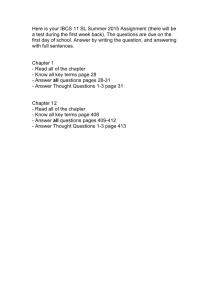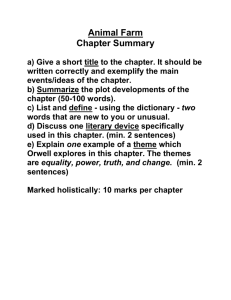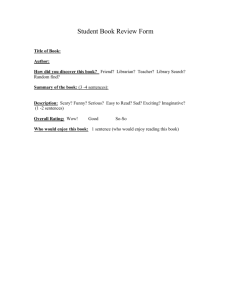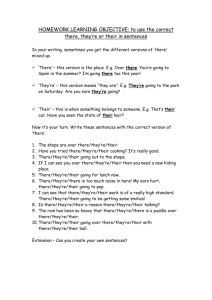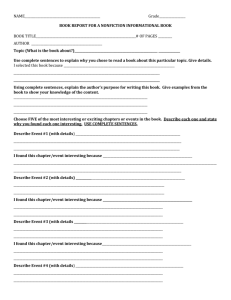ICA
advertisement
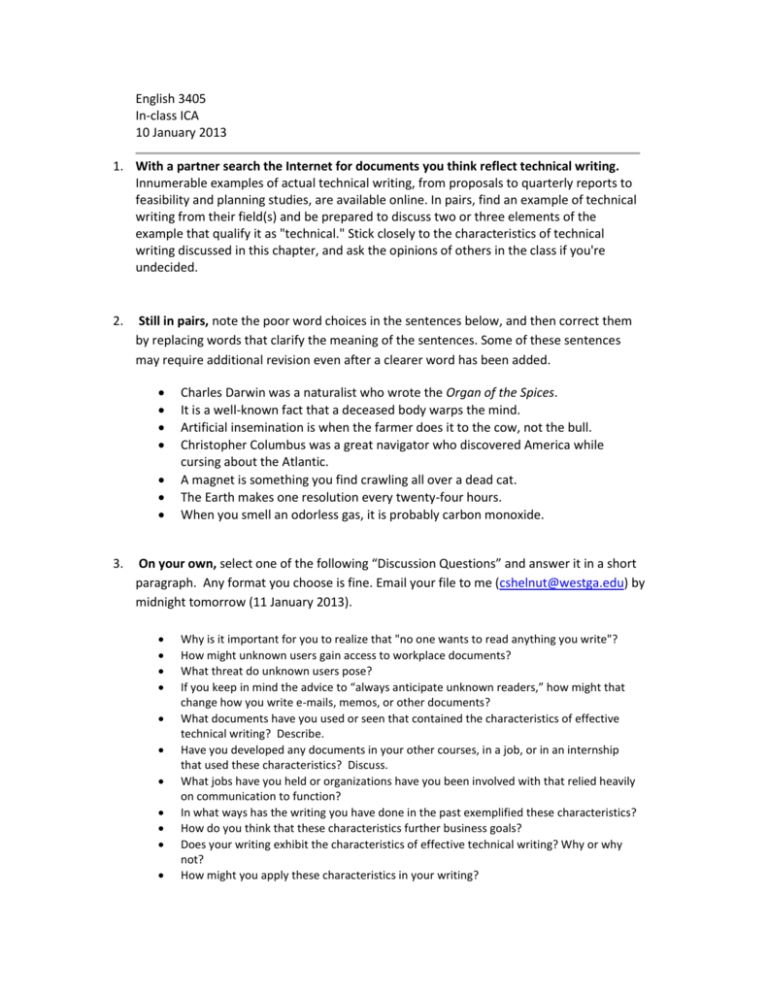
English 3405 In-class ICA 10 January 2013 1. With a partner search the Internet for documents you think reflect technical writing. Innumerable examples of actual technical writing, from proposals to quarterly reports to feasibility and planning studies, are available online. In pairs, find an example of technical writing from their field(s) and be prepared to discuss two or three elements of the example that qualify it as "technical." Stick closely to the characteristics of technical writing discussed in this chapter, and ask the opinions of others in the class if you're undecided. 2. Still in pairs, note the poor word choices in the sentences below, and then correct them by replacing words that clarify the meaning of the sentences. Some of these sentences may require additional revision even after a clearer word has been added. 3. Charles Darwin was a naturalist who wrote the Organ of the Spices. It is a well-known fact that a deceased body warps the mind. Artificial insemination is when the farmer does it to the cow, not the bull. Christopher Columbus was a great navigator who discovered America while cursing about the Atlantic. A magnet is something you find crawling all over a dead cat. The Earth makes one resolution every twenty-four hours. When you smell an odorless gas, it is probably carbon monoxide. On your own, select one of the following “Discussion Questions” and answer it in a short paragraph. Any format you choose is fine. Email your file to me (cshelnut@westga.edu) by midnight tomorrow (11 January 2013). Why is it important for you to realize that "no one wants to read anything you write"? How might unknown users gain access to workplace documents? What threat do unknown users pose? If you keep in mind the advice to “always anticipate unknown readers,” how might that change how you write e-mails, memos, or other documents? What documents have you used or seen that contained the characteristics of effective technical writing? Describe. Have you developed any documents in your other courses, in a job, or in an internship that used these characteristics? Discuss. What jobs have you held or organizations have you been involved with that relied heavily on communication to function? In what ways has the writing you have done in the past exemplified these characteristics? How do you think that these characteristics further business goals? Does your writing exhibit the characteristics of effective technical writing? Why or why not? How might you apply these characteristics in your writing?



